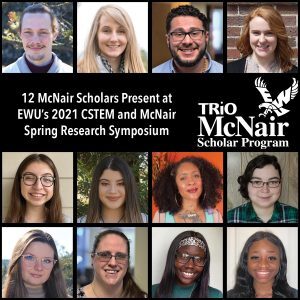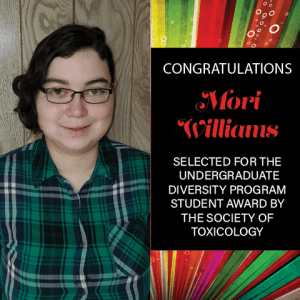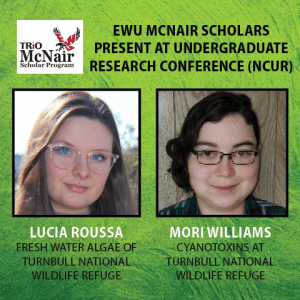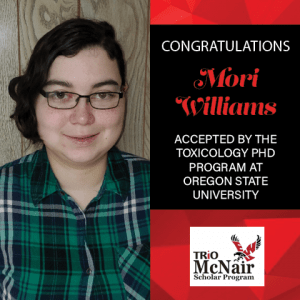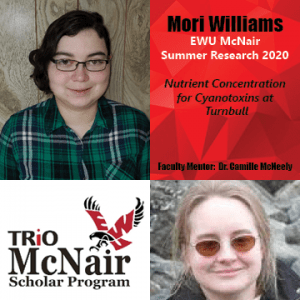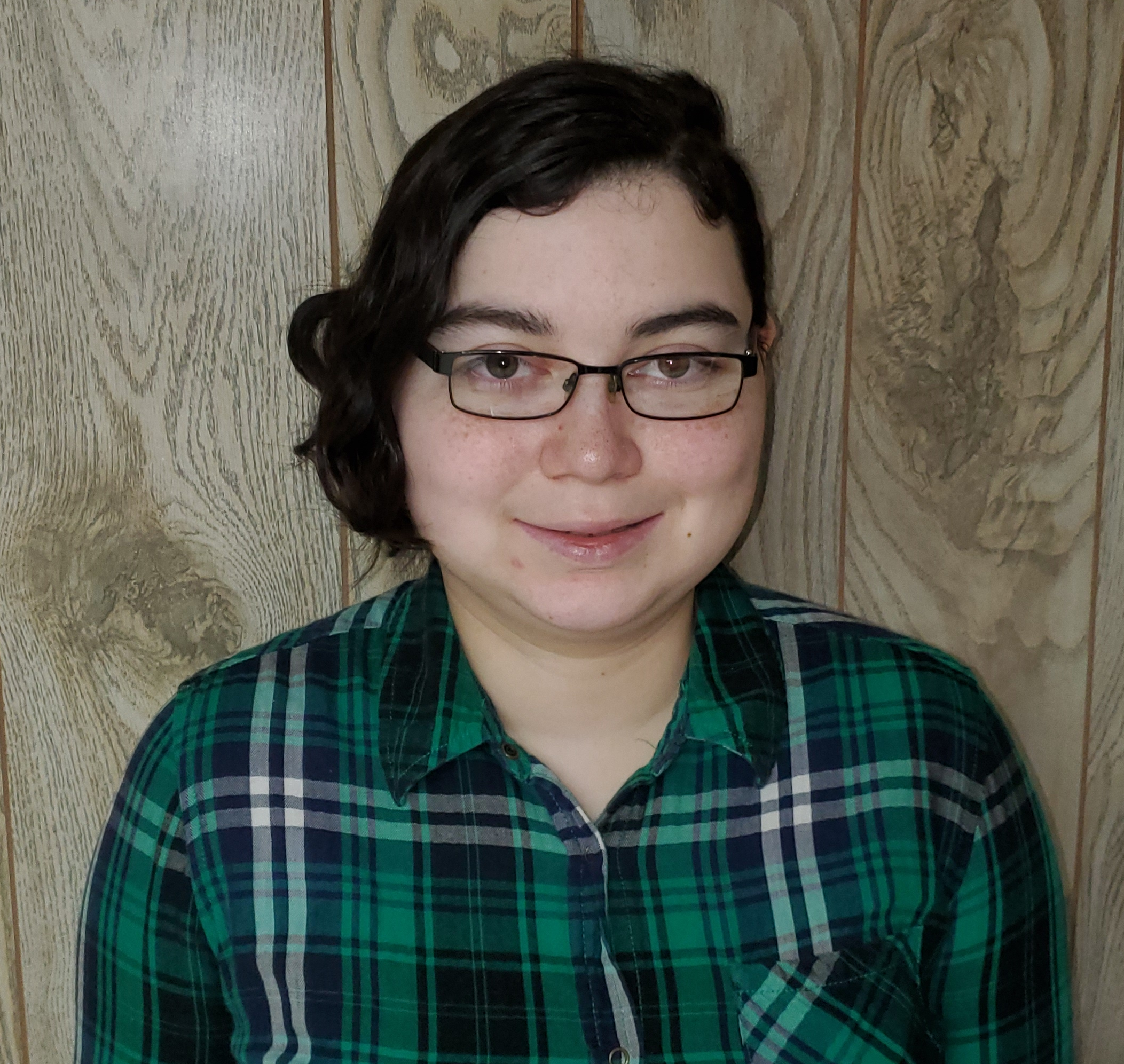
Mori Starr graduated from Eastern Washington University with a Bachelor of Science degree in Environmental Science with an emphasis in Chemistry and a minor in Japanese. He worked in the Organic Chemistry lab, which involved saponification, NMR readings, and reflux methods. For his 2020 EWU McNair Research Internship, he worked with Dr. Camille McNeely in researching cyanobacteria in local areas such as the Spokane River. His research interests focus on finding and reducing or eradicating toxins in bodies of water such as lakes, ponds, and the ocean. For graduate school, he was accepted into the PhD Program in Toxicology at Oregon State University and the Masters in Atmospheric & Environmental Science Program at the South Dakota School of Mines and Technology with full funding. Mori plans to starting attending South Dakota Mines in the fall 0f 2021.
2020 EWU McNair Faculty Mentor: Dr. Camille McNeely
Research Title: Nutrient Concentration for Cyanotoxins at Turnbull
Abstract: This study analyzed concentrations of microcystins from cyanobacteria along with factors associated with cyanobacterial growth in wetlands of the Turnbull National Wildlife Refuge (TNWR) near Cheney, Washington. Cyanobacteria are oxygen-producing bacteria that use sunlight as an energy source to convert CO2 into biomass. These bacteria have been around for over 3 billion years. Recently, cyanobacteria have contaminated drinking water and aquatic ecosystems due to eutrophication, rising CO2 levels, and global warming. Due to anthropogenic sources such as agricultural run-off and discharge from wastewater treatment facilities, cyanobacteria have access to higher concentrations of phosphorous and nitrogen, allowing them to produce toxins. Depending on nutrients available and the type of cyanobacteria, they can release different toxins that have diverse health effects on animals (including humans) such as organ damage, respiratory failure, skin irritation and fever. TNWR has been observed in the past to have eutrophication and may be at risk for cyanotoxin production. This study had multiple hypotheses; (1) at least some wetlands will contain measurable concentrations of microcystin, (2) cyanobacteria will be most abundant under high nitrogen conditions, and (3) cyanobacteria abundance will be positively correlated with indicators of eutrophication such as high chlorophyll concentrations.
Samples were collected from nine wetlands around TNWR throughout three summer months. Major forms of nitrogen and phosphorus were analyzed using an Alpkem 3 flow analyzer. Chlorophyll and phycocyanin concentrations were determined using fluorometry and spectrophotometry. Phycocyanin is a pigment found in cyanobacterial cell walls. An ELISA-based test was used to determine concentrations of microcystins. Preliminary results revealed traces of microcystins in the water at TNWR with the lowest concentration at 0.49 ppb and highest concentration at 1.48 ppb. There is a positive correlation between phycocyanin and microcystins (t = 4.36) and a negative correlation between total nitrogen and microcystin (t = -3.02).
